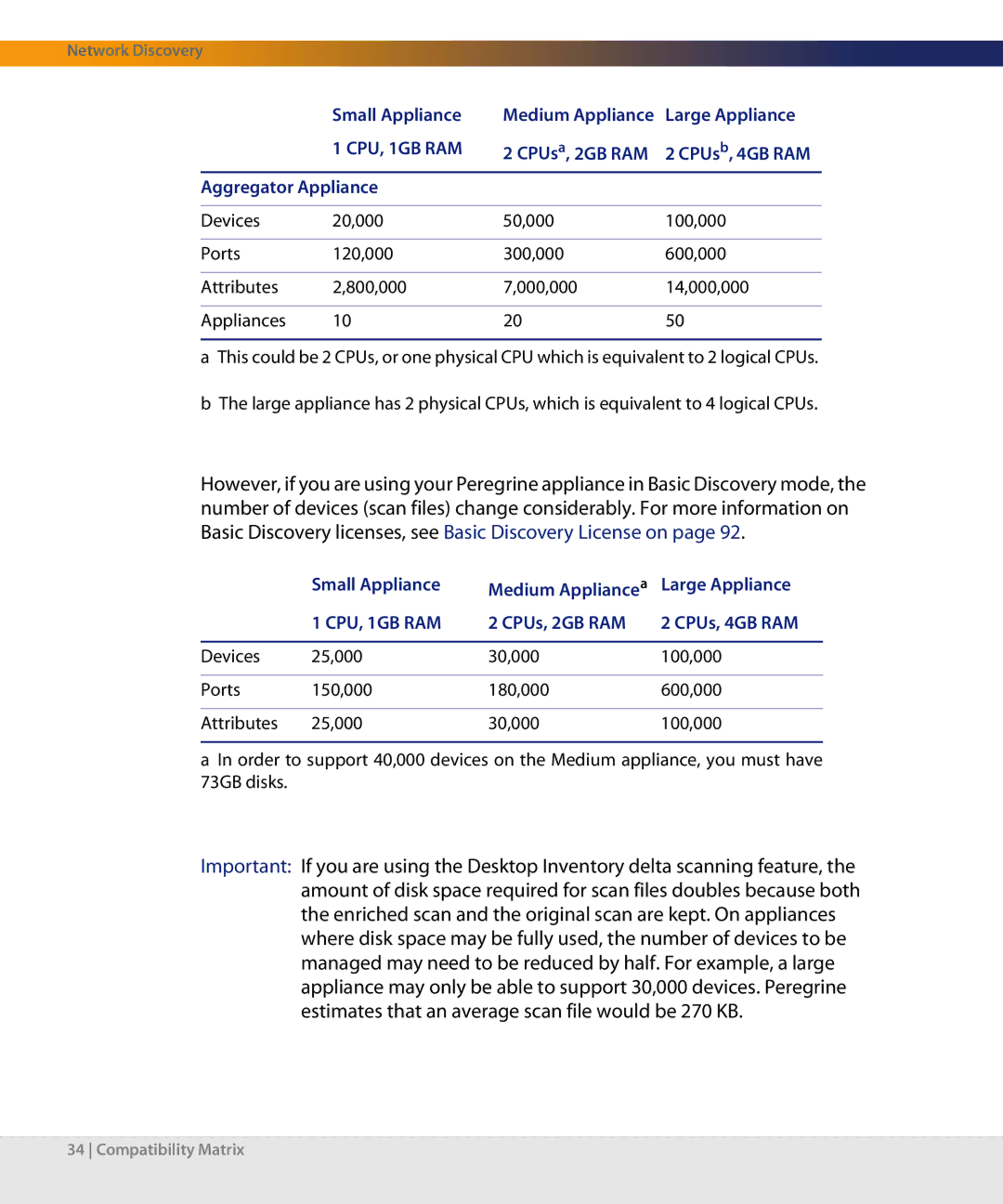
Network Discovery
| Small Appliance | Medium Appliance | Large Appliance |
| 1 CPU, 1GB RAM | 2 CPUsa, 2GB RAM | 2 CPUsb, 4GB RAM |
Aggregator Appliance |
|
| |
|
|
|
|
Devices | 20,000 | 50,000 | 100,000 |
|
|
|
|
Ports | 120,000 | 300,000 | 600,000 |
|
|
|
|
Attributes | 2,800,000 | 7,000,000 | 14,000,000 |
|
|
|
|
Appliances | 10 | 20 | 50 |
aThis could be 2 CPUs, or one physical CPU which is equivalent to 2 logical CPUs.
bThe large appliance has 2 physical CPUs, which is equivalent to 4 logical CPUs.
However, if you are using your Peregrine appliance in Basic Discovery mode, the number of devices (scan files) change considerably. For more information on Basic Discovery licenses, see Basic Discovery License on page 92.
| Small Appliance | Medium Appliance | a | Large Appliance |
|
|
|
| |
| 1 CPU, 1GB RAM | 2 CPUs, 2GB RAM |
| 2 CPUs, 4GB RAM |
|
|
|
|
|
Devices | 25,000 | 30,000 |
| 100,000 |
|
|
|
|
|
Ports | 150,000 | 180,000 |
| 600,000 |
|
|
|
|
|
Attributes | 25,000 | 30,000 |
| 100,000 |
aIn order to support 40,000 devices on the Medium appliance, you must have 73GB disks.
Important: If you are using the Desktop Inventory delta scanning feature, the amount of disk space required for scan files doubles because both the enriched scan and the original scan are kept. On appliances where disk space may be fully used, the number of devices to be managed may need to be reduced by half. For example, a large appliance may only be able to support 30,000 devices. Peregrine estimates that an average scan file would be 270 KB.
34 Compatibility Matrix
